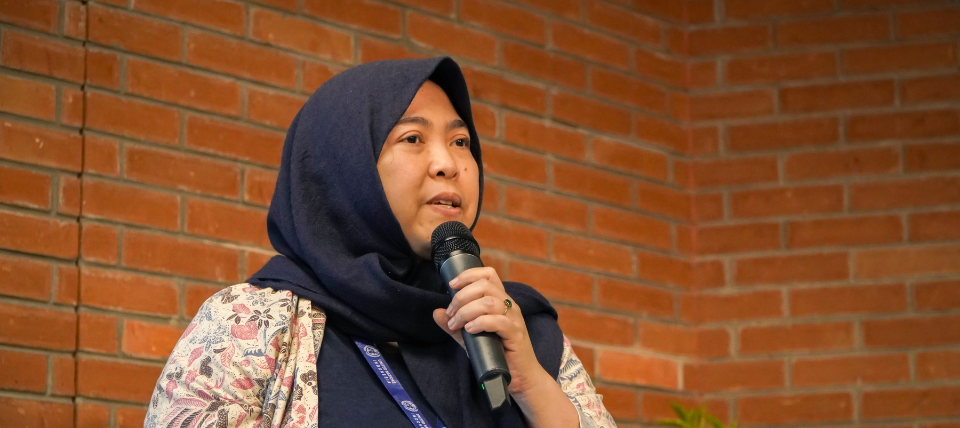Promoting Active Youth Engagement in Sustainability Actions to Protect Children’s Rights

Jakarta, 26 May—Amid growing global political tensions and economic challenges, the future may seem increasingly uncertain, especially for children who need a safe and supportive environment to grow. Driven by this pressing need, Lukita Setiyarso, Child Rights and Business Specialists from UNICEF Indonesia, visited our Anggrek campus to raise awareness within our academic community. She especially aimed at our students as part of youth who act as agents of change.
(Photo Credit: Mufti Warits)
In these challenging times, ensuring the protection of their rights and well-being demands urgent of collective actions.
Lukita delivered a strong message by pointing out that this responsibility does not rest solely with governments. It also demands active involvement from the private sector through meaningful corporate social responsibility initiatives that support human development and social equity.
(Photo Credit: Mufti Warits)
“However, to ensure these efforts lead to real and lasting impact, we must actively involve young people as the agents of change. Your role goes beyond participation, as we can see you are drivers of innovation, hope, and transformation,” added Lukita while engaging in a dialogue with our students on the role of youth in addressing the issue.
Equally important are the roles of non-governmental and international humanitarian organizations, playing a vital part in identifying and addressing social issues through advocacy, community engagement, and policy influence. UNICEF, with its strong commitment to child protection, serves as a powerful example of how its role to engage with various stakeholders to build a safer and more inclusive environment for children worldwide.
(Photo Credit: Mufti Warits)
Reflecting on her eight years of work with UNICEF, she explained that universities play a multifaceted role not only serve as vital centers for advancing knowledge and conducting impactful research but also provide a nurturing environment where young people can develop essential skills, values, and leadership qualities.
(Photo Credit: Mufti Warits)
Through this thoughtful discussion, our students have shown remarkable enthusiasm in exploring these critical social issues. They actively engage in discussions about the challenges and reflecting deeply on the roles they can play as university students and future leaders in creating a more inclusive and sustainable society where every child has the opportunity to grow in a safe and supportive environment.
(Words by Mita Adhisti/Editor: Hamzah Ramadhan)





